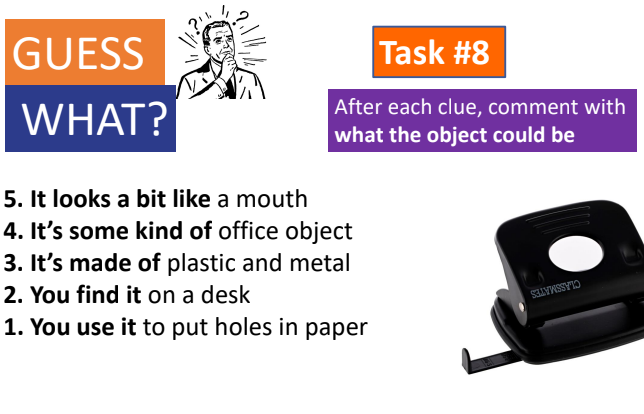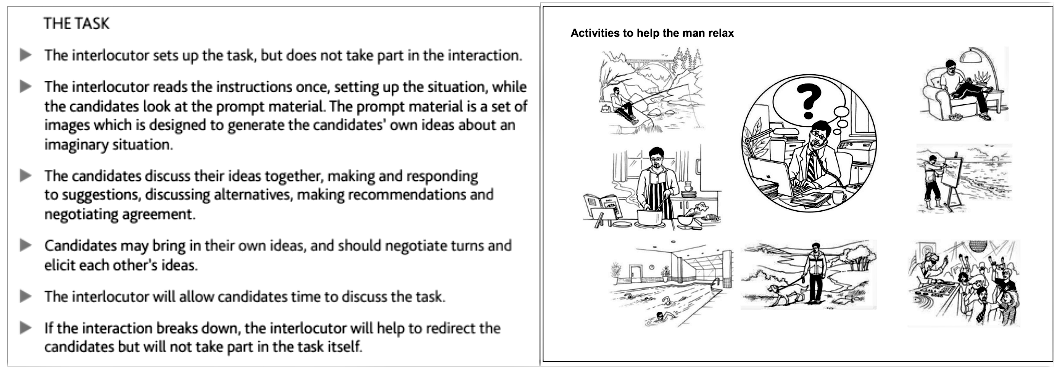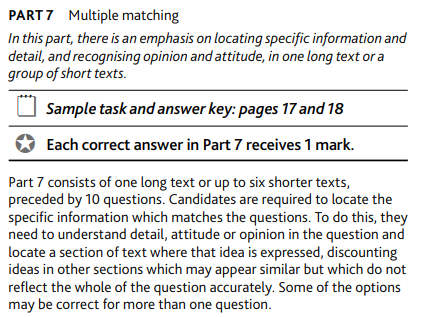Why don’t football teams prepare for their big matches by…playing matches? The reason they don’t was the key to the concept of my ELTABB talk on Saturday 12th March. Here’s a brief rundown of the points that we covered.
So, if it’s not playing matches to prepare for matches, what do football teams do instead?
They have training sessions in which skills – for example, volleying – are isolated, worked on and developed. This focus allows that particular skill to be improved more rapidly and effectively than if it were sporadically practised in a match situation. And we should apply the same principle to our exam classes.
Developing vs practising exam strategies
Doing the exam, or part of the exam in our exam classes, is our students’ equivalent of the big game. This is where strategies such as exam sub-skills and techniques are jointly put into practice. The sole focus lies on passing the exam/winning the match.
However, our exam classes should also take on the form of training sessions: where we isolate exam sub-skills and techniques and look explicitly to develop said skills and techniques. That is the explicit purpose of the class, to ensure it progresses more rapidly.
To put this concept into a practical context, think about the Cambridge B1 Preliminary Speaking Part 2 below.
Imagine you get to spend, say, five lessons a year on this part.
Think about it – which five lessons would improve your pupils’ ability to interact with another person more:
Five lessons where students repeatedly do the exam task, or five lessons where the focus was developing turn-taking, backchanneling, interrupting, asking questions and agreement respectively?
I’ll leave that to you to decide.
Practice wins the battle – but is that a good thing?
As a teacher trainer, I have seen many exam classes that just relentlessly ‘practise’ exam strategies: doing exam questions, parts, activities or even whole papers, but don’t see anywhere near as many classes where individual strategies are isolated and developed.
This is what I attribute to slow progress amongst some students: the year-round using and practising, rather than developing of their exam skills.
However, that is not to say that practice shouldn’t happen: it should. It is vital that pupils deal with the exam format they will be confronted with on the big day. However, the balance is currently heavily in favour of practising, instead of being equal.
What exam strategies to develop
A common question that trainers often ask is: ‘But how do I know what strategies to teach?’.
And the good news is that teachers can find them in a variety of ways and places.
Firstly, from exam support material. Most exams will come with an accompanying handbook and marking criteria that will highlight good strategies that are worth developing. For example, all Cambridge exam handbooks give a detailed outline of the exam and the strategies that students should have to do well in any part of an exam.
Here’s an example:
Coursebooks affiliated with an exam or exam board will also provide you with ideas. Open World, to name just one, is a coursebook that supports the Cambridge exam series.
Don’t forget to ask your colleagues for their ideas too and, of course, don’t forget to ask yourself! Your knowledge of the exam can help you decide what your students need in order to succeed.
Know that part of the writing exam involves writing a story? Then, with a little thought, identify the strategies that you can develop to improve your students’ review-writing performance. Using the past perfect and reported speech may be just a couple of ideas worth pursuing in this case.
In context vs not in context
Another theme that we touched upon was the fact that the development of strategies is usually done outside of an exam context.
For example, I demonstrated an activity called ‘Guess Who?’ where students write five clues, each increasing in obviousness, to describe an obscure household item.

However, while it will aid them in the exam, there is NO mention of the exam during the activity.
But why, you ask?
Real-world contexts are often more inspiring for students, especially teens and young learners. The very mention of the exam is often enough to provoke a chorus of groans amongst your classic teen class and affect the morale amongst the group.
So, keep it a secret… for the time being.
‘For the time being’ is key here because most development activities and lessons should be followed by a period of reflection where the purpose of the lesson is made evident to the students. By making it conscious, students are more likely to then retain and use what they’ve learnt.
Another way of ensuring this is to follow up all development with the opportunity to put it into practice by doing the relevant exam part.
However, development doesn’t always have to be outside of the exam context and in fact, sometimes certain classes or students dislike the fact that there isn’t a clear and immediate relevance to the exam.
It’s just about knowing your students and what they would prefer.
Interactive, practical and participative
The second and third hour of the talk focused on providing practical examples of developing listening and speaking. There were many activities in which participants acted as students before engaging in a discussion on the process and benefits of each activity. There were too many activities demonstrated to detail here but my personal favourites were:
- Using voice recognition software e.g., Google Translate to test exam pronunciation
- Concealing options in listening activities during the first listening, allowing students to just listen and avoid confusion caused by looking at the options whilst listening. Students then look at the options, before using the second listening to confirm their answer.
- Information exchange: where students address a question/situation together, but each with limited information. This means that students develop their active listening skills as they are forced to listen to their partner to complete the task.
The workshop ended with a recap and a final message:
While it’s good advice for all teachers to look to develop skills more, it’s very much a case of doing what’s right for your students and particular setting. Whether that’s more practice, more developing, using the exam as context, or not having any reference to the exam at all: you’re the person who’s best placed to know how to prepare your pupils for match day.
***

Greg Wagstaff
Greg Wagstaff is a freelance teacher trainer based in Seville, Spain, where he works for Cambridge University Press and Cambridge Assessment. He also works for the YouTube channel ‘Learn English with Cambridge’, scripting, editing, and starring in videos for English language learners. Greg’s practical talks are full of innovative tips and activities that can be implemented in class straight away. You can find him on Facebook, Instagram and LinkedIn.








